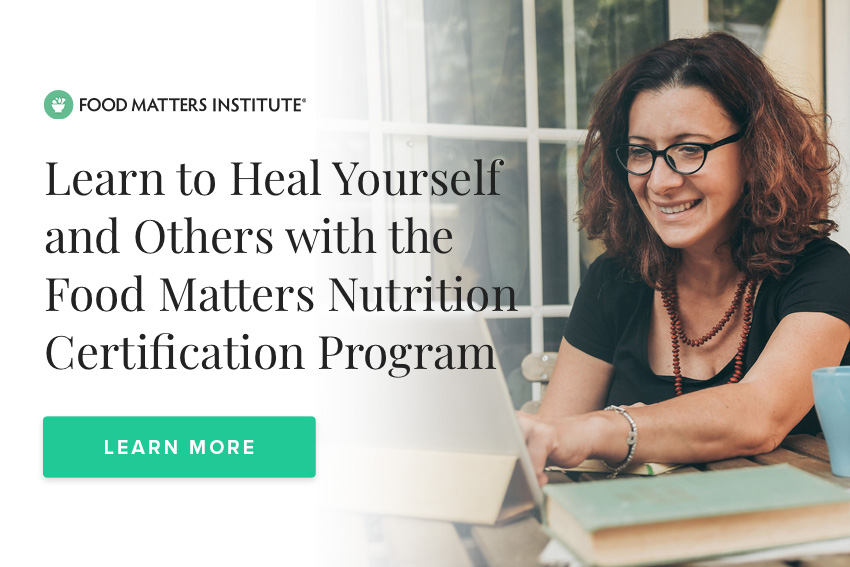Longevity Is The New Anti-Aging
When we hear the words “anti-aging” most of us think about the outside of our body—the part of us that other people see. We want to look good for our age: to have beautiful, unblemished, taut skin and a youthful glow. But have you ever considered that aging occurs from the inside out?
When we focus solely on topical creams, serums, lotions and potions, we miss an entire (and rather important) piece of the anti-aging picture. And sure, we may be able to use cosmetic medicine to counteract any signs of aging—but what if you could prevent premature aging simply by taking excellent care of your body?
Due to the incredible advances of Western medicine, we’re likely going to continue to live longer and longer. We are so fortunate to live in a time where there is such extraordinary emergency medicine available to us. Yet, in reality, are we living too short and dying too long?
This is an important question to ponder; for what I care about (and what I hope you care about too) is the quality of your life. Today, as well as in the later part of your life, you want to be able to bend over and do up your own shoelaces. Imagine what life would be like if you had to rely on someone else to do this? How would your once independent self feel? You don’t want this to happen because your tummy has grown too large for you to be able to reach your feet, and so in later years you sit back and wish you had changed the way you had eaten earlier. You don’t want to not be able to reach your feet because you have led a sedentary lifestyle and in later years your spine is relatively inflexible and you can’t bend over. You don’t want that to occur. So the ways you eat, drink, move, sleep, think, breathe, believe and perceive don’t just impact on how you feel, function and look today, they are going to influence how you feel, function and look in the future. And the power to change all of that is in your hands — and in your hands only. Let that empower you.
So with that in mind, let’s look at anti-aging and longevity from a holistic perspective. And we can’t do that without considering what causes aging in the first place.
Oxidative Stress
This major cause of aging is the damage to DNA, proteins and lipids (fatty substances) caused by oxidants, which are highly reactive substances containing oxygen. These oxidants are produced normally when we breathe, and also result from inflammation, infection, and the consumption of alcohol, cigarettes and other pollutants. It would be remiss of me not to mention that stress and rushing speeds up our breathing rate, which increases the amount of free radicals we produce.
Telomeres
Inside the center or nucleus of a cell, our genes are located on twisted, double-stranded molecules of DNA called chromosomes. At the ends of the chromosomes are stretches of DNA called telomeres, which protect our genetic data, making it possible for cells to divide. Telomeres have been compared with the plastic tips on shoelaces because they prevent chromosome ends from fraying and sticking to each other, which would scramble our genetic information and possibly lead to disease or death. Telomeres are in place to prevent this. Yet, each time a cell divides, the telomeres get shorter. When they get too short, the cell can no longer divide and it becomes inactive or dies.
Glycation
Another factor in aging is glycation. This occurs when glucose (sugar) from what we eat binds to some of our DNA, proteins and lipids, leaving them unable to do their jobs. If we have a diet high in processed foods, the problem becomes worse as we get older since the cumulative sugar intake for most just keeps growing. This can cause cells and tissues to malfunction, resulting in aging, or in some cases, disease.
So now that we understand the mechanisms through which aging occurs,what can we do about it?
Here are my top 4 tips to maintaining an excellent quality of life as we get older:
1. Eat whole real foods (mostly plants)
The substances that give vegetables their colors act as antioxidants in the human body. Antioxidants help to combat oxidative stress by pairing up with the free radicals which, on their own, cause damage to our cells. Scientists are also starting to understand that antioxidants potentially play a role in slowing telomere shortening. But eating whole real foods isn’t just about what you get, it’s about what you miss out on, too.
Reducing your intake of processed foods, or what I like to call high human intervention foods, means you’re less likely to overconsume sugar, trans fats, additives and preservatives - all of which take a toll on our health through diminishing our digestive power and giving our liver more to process. No amount of exercise can combat the effects of a lousy way of eating. Changing your diet is a powerful way to promote anti-aging and increase your quality of life into your elderly years.
2. Avoid sugar
Not that long ago in human evolution, processed, high-sugar foods didn’t exist. Then, in the not-too-distant past, they were eaten only on special occasions, like birthday parties, but now they have become part of every day for too many people. I cannot say this enough: it is what you do every day that impacts on your health, not what you do sometimes. The aging process will potentially be slowed if you consume less refined sugars.
3. Build Muscle and Maintain Mobility
From the age of 30 onwards, if we don’t actively build muscle we gradually lose it. Embrace resistance training. This doesn’t have to mean going to the gym unless that spins your tires. In a yoga practice, you resist your own body weight. Pilates, too, is excellent resistance training, as is gardening, farm work, carrying groceries and children. Don’t avoid movement. Take the stairs regularly, for example. Build muscle.
A concept I also want to encourage you to explore is “functional movement”. It is based on real-world situational biomechanics, which is not my area of expertise. I have, however, worked alongside pioneers in this field who possess the health, youthfulness, vitality and physique that are testaments to these practices. We need to make sure that for our whole life, not just when we are young, our body is able to perform all the movements that are necessary for daily life and an active lifestyle.
Every movement our bodies perform can be broken down into a series of one of seven movement patterns. These are often referred to as the Seven Primal Movement Patterns, and they are the squat, lunge, push, pull, bend, twist, gait. We all need a general functionality in each one of these patterns for normal daily activities, such as loading groceries, lifting boxes, or running to catch the bus.
4. Make Water Your Main Drink
Water is the basis of all life, and that includes your body. The muscles that move your body are 75 percent water. Your blood, responsible for transporting nutrients throughout your body, is 82 percent water. Your lungs, that take oxygen from the air, are 90 percent water, while your brain is 76 percent water. Even your bones are 25 percent water!
Most people are aware of the critical importance of great hydration for their health, and of course for their skin in particular. Yet so many people tell me that they know they should be drinking more water. Unintentional chronic dehydration can contribute to pain and inflammation in the body, not to mention fatigue, which can have an enormous impact on whether we feel youthful or not.
Do you have a passion for nutrition & natural healing?. Learn more about the Food Matters Nutrition Certification Program here.









